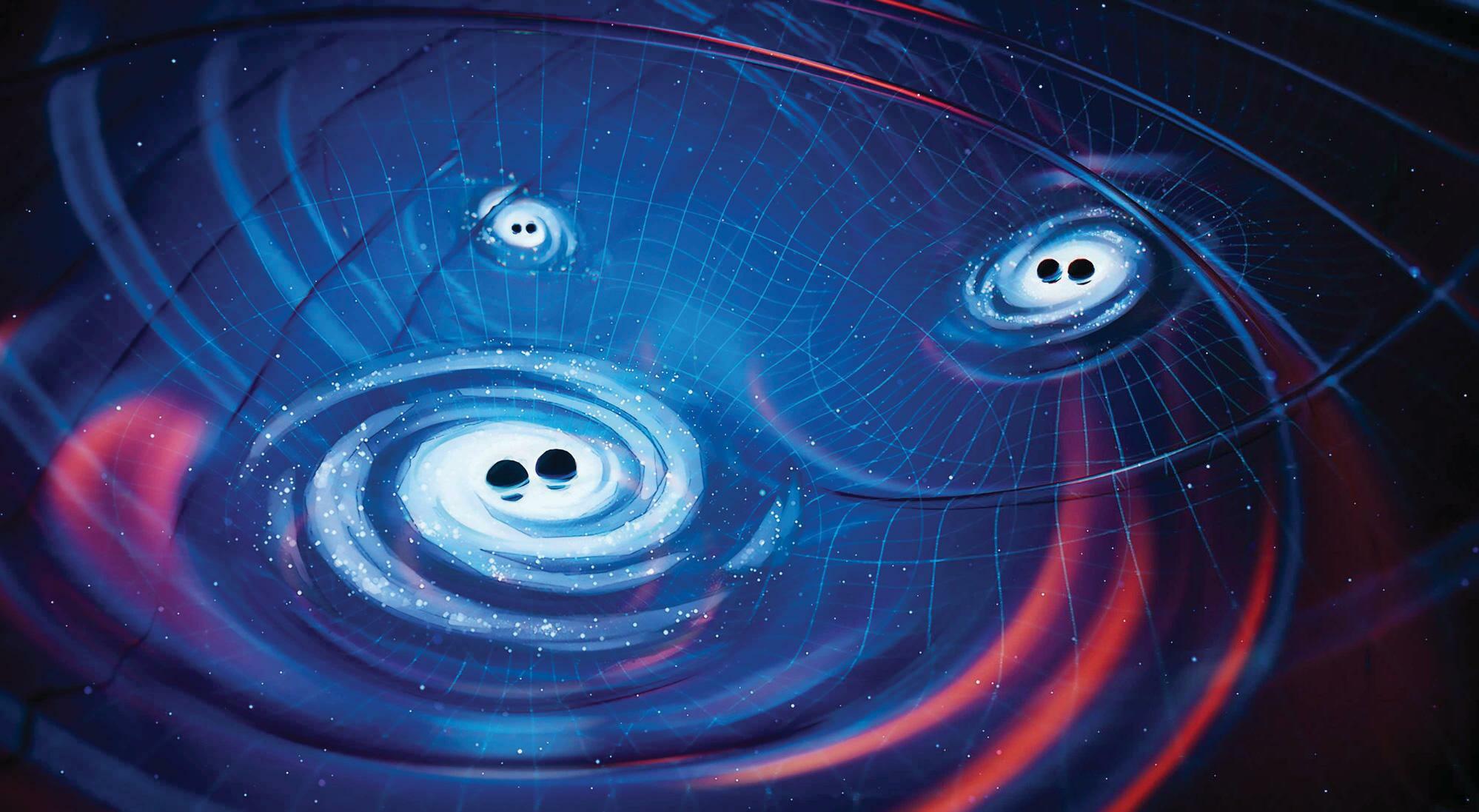
An international team of scientists has found evidence that suggests Earth, and indeed everything in the Universe, is afloat on a constantly rippling sea of low-frequency gravitational waves.
The findings, announced in a series of papers published in The Astrophysical Journal Letters were made by the North American Nanohertz Observatory for Gravitational Waves (NANOGrav), a team of researchers from more than 50 institutions in the US and abroad. Together, the papers provide the first evidence of a gravitational wave background - essentially, a soup of spacetime distortions that pervade the entire Universe.
"This is the first-ever evidence for the gravitational wave background. We've opened a new window of observation on the Universe," said NANOGrav scientist Dr Chiara Mingarelli.
Gravity waves were first predicted by Albert Einstein in 1916, but their existence wasn't confirmed until 2015 when they were first detected by the Laser Interferometer Gravitational-wave Observatory (LIGO).
Diese Geschichte stammt aus der August 2023-Ausgabe von BBC Science Focus.
Starten Sie Ihre 7-tägige kostenlose Testversion von Magzter GOLD, um auf Tausende kuratierte Premium-Storys sowie über 8.000 Zeitschriften und Zeitungen zuzugreifen.
Bereits Abonnent ? Anmelden
Diese Geschichte stammt aus der August 2023-Ausgabe von BBC Science Focus.
Starten Sie Ihre 7-tägige kostenlose Testversion von Magzter GOLD, um auf Tausende kuratierte Premium-Storys sowie über 8.000 Zeitschriften und Zeitungen zuzugreifen.
Bereits Abonnent? Anmelden

COULD MARINE CLOUD BRIGHTENING HELP US FIGHT CLIMATE CHANGE?
The theory behind marine cloud brightening is that brighter or whiter clouds reflect more sunlight back into space.

IS IT SAFE TO RUN EVERY DAY, OR SHOULD I DITCH MY RUN STREAK TO SAVE MY KNEES?
A running streak, where you run every day without taking rest days, can be highly motivating and beneficial for overall fitness. Running is great cardiovascular exercise and isn't to be discouraged (and finding a routine with some consistency is great). Getting a bit of exercise as often as possible is also hugely beneficial for your mental health.

WHAT MAKES THE MEDITERRANEAN DIET SO GOOD FOR US?
The Mediterranean diet may help you live longer, especially if you also adopt the lifestyle of people living near the Med during the 1950s.

WHAT IS MEXICO'S BLUE HOLE?
The world's deepest blue hole (marine sinkhole) lies off the coast of Mexico's Yucatán Peninsula. It's at least 420m (1,378ft) deep, but explorers still haven't found its bottom.

HOW CAN I TELL IF I'VE GOT HIGH CORTISOL LEVELS?
Cortisol is a hormone produced by glands in our bodies called the adrenal glands, which sit above the kidneys. It plays a critical role in various bodily functions, including regulating metabolism, reducing inflammation and helping the body respond to stress. While essential for our health, chronic elevation of cortisol levels can lead to several issues.

THE LUNGFISH
In 1836, European scientists discovered a peculiar animal from the River Amazon that they struggled to identify. Its eel-like body was a few feet long and its air-filled lungs persuaded anatomists it must be a reptile.

ARE WE THE ONLY SPECIES TO HAVE BEEN THROUGH A STONE AGE?
The Stone Age might conjure up images of early humans, sitting around a campfire or hunting prehistoric beasts, but evidence shows that we're not the only species that has learned how to work with stone tools. Wild chimpanzees (Pan troglodytes) use stone tools to crack open nuts.

Should we scrap daylight saving time?
Most of us look forward to the extra hour we get in bed every October, but researchers argue that changing the clocks twice a year harms our health

THE INTERNET OF ANIMALS
SCIENTISTS ARE USING ELECTRONIC TAGS AND SATELLITES TO TRACK WILD ANIMALS AND CREATE A DATA NETWORK THAT COULD HELP US ADDRESS THE BIODIVERSITY CRISIS

MUSIC FOR A DISTRACTED GENERATION
The number of things competing for our attention is often overwhelming. Can dreamy soundscapes created with neuroscience help our bewildered brains to concentrate?